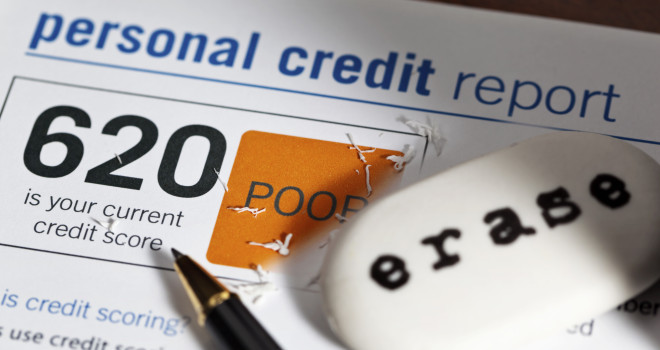Understanding the Credit Check
Can you afford the rent? Will you pay on time? Proof that you are a good credit risk is one of the key factors in a landlord’s decision to rent to you. The credit check is a tool that most landlords will use to assess your credit worthiness.
Your Credit History Is on File
You build a credit file when you borrow money and pay it back. A credit file is a detailed report containing information about how you use credit and when you make payments. It also includes both current and past information on where you live and work. Credit files are maintained by credit bureaus, which build a record of your credit history based on information given to them by creditors such as banks and credit card companies.
There are two credit bureaus in Canada: Equifax Canada and Trans Union Canada. A third company, Rent Check Credit Bureau, acts as a credit bureau for the housing industry, collecting from landlords about the payment history of their tenants as well as court judgements against tenants.
Understanding Your Credit Rating
You’ve likely heard people talk about a credit rating, which is a numerical score that creditors use to assess your credit worthiness. It is calculated each time someone — a lender or a potential landlord — requests it.
The formula used to calculate your rating will use the information in your credit file. The scoring systems give you points for each demonstration of responsible credit use. Your credit rating is the sum of these points.
Three main systems — Beacon, Empirica, and FICO® Score — can be used to calculate your credit score. The system that is used depends on which bureau issued your file and who will use it. Information from an Equifax file generates a Beacon score. Information from a Trans Union file generates an Empricia score. Banks and other lenders tend to use these scores. A FICO® score is a credit rating provided directly by Equifax to individuals and it allows people to gauge their credit rating for themselves.
No History Makes Assessment Difficult
If you have never had a loan or a credit card, prospective landlords will have little or no information to review in your credit file. Although an empty file is not as bad as a poor credit file, an empty file tells prospective landlords nothing about any possible financial risks of renting to you. That’s why establishing a good credit file is crucial.
If you are a first-time renter, have had credit problems or do not have a credit rating, you may need a guarantor’s letter from a parent or close friend stating that the guarantor will assume the risk if the you fail to pay the rent.
How Do I Get a Good Rating?
Be sure to make loan and bill payments and minimum credit card payments on time. These timely payments will be reflected in your credit file and will demonstrate that you can use credit responsibly. As a result, your credit rating will be favorable each time it’s calculated. Consistently missing payments, or making late payments, will lower your rating.
Your credit rating will change over time, based on how you use your money and credit. It may take months or years of demonstrating good credit to fix damage caused by poor credit repayment in the past.
How Long Is Negative Information Kept on File?
Each credit agency sets its own timelines for removing information from a file, guided by provincial legislation. In general, both positive and negative information remains on file for six years. Information on the date that the credit was granted also remains in your file. In other words, if you have had a credit card for twenty years, only the last six years of your payment history — good and bad — will remain on file. However, since the account’s activation date is included in your file, anyone looking at it will be able to see that you have had the credit card account for twenty years.
Negative information, such as court judgements or late debt payments, is typically removed six or seven years after the filing date. In regards to the time that judgements are kept on file Prince Edward Island is an exception. (In PEI, information about judgements is either removed seven years after the date satisfied (the date when the money owed has been paid) or it is removed ten years from the date filed. If the debt is not satisfied it could even be renewed for another ten year period.) Bankruptcies typically remain on a credit file for six years from the date of discharge; there is some variance depending on the province or territory in question. However, bankruptcy information will remain on the credit file for a longer time if there has been more than one bankruptcy.
Checking Your File Is Vital
Because errors and omissions on credit reports do occur, it is a good idea to check your file from time to time. Anyone can request a copy of their credit file from the credit bureaus via mail or fax. Telephone requests are not available, as a credit bureau needs to verify your identification. Forms that you can print and then mail or fax are available on each credit bureau Web site.
If you find an error or discover that favorable credit information is missing, contact all the credit bureaus and have it corrected to ensure your credit history is accurately represented to creditors and lenders. You are going to need proof, so be ready to provide statements or receipts. Each bureau sends its policy for reporting an error with the copy of your credit file. Each policy is different, so be sure to review it once you have collected your proof of payment.
A credit bureau will only correct false information in your file. Factual payment information cannot be changed or removed. If you missed a payment by accident, it will be reported as missed on your file and cannot be changed. In this situation, you have the right to have a comment included with your file explaining why you missed the payment. This comment may or may not be considered the next time someone requests your file and generates a score.
Take Action
Verify what is in your credit file and get errors corrected before you agree to share its contents with anybody. Contact information for Equifax Canada, and Trans Union which are organizations that represent your credit file for anywhere you have lived in Canada, as well as for Rent Check Credit Bureau follows:
Equifax Canada
Consumer Relations Department
Box 190 Jean Talon Station
Montréal, Qc
H1S 2Z2
Tel.: 514-493-2314
1-800-465-7166
Fax: 514 -355-8502
Trans Union Canada
http://www.creditprofile.transunion.ca/entry/silver.jsp?cb=CMHC
Consumer Relations
709 Main Street W Suite 3201
Hamilton, On
L8S 1A2
Tel.: 1-800-663 9980
Fax: 905-527-0401
Reference and Other Checks
Beyond the basic credit report, a landlord can determine your suitability as a tenant in other ways. Some landlords will validate all your references and run a thorough check into your rental history.
After checking your financial suitability, landlords will want to know what kind of tenant you are. Most often, they will ask former landlords about your character as well as your past rent payment patterns. While some people will check only with your last landlord, others will also check with your past two or three landlords.
In some provinces, rent registries and landlord advocacy groups compile information about delinquent tenants. This information is easily accessible to landlords. Information about past illegal activities may also show up during a landlord’s check.



 @pinedaleprop
@pinedaleprop